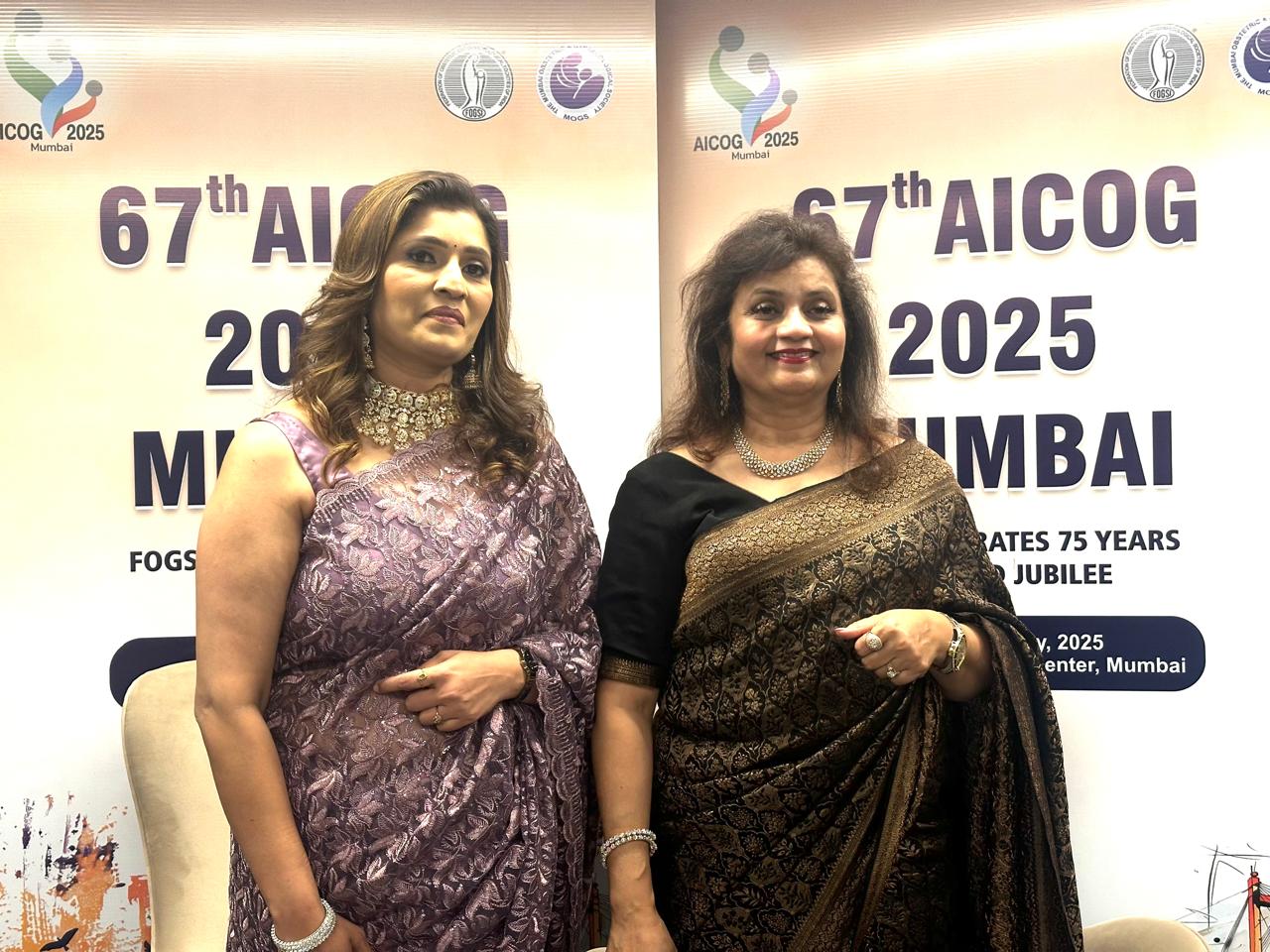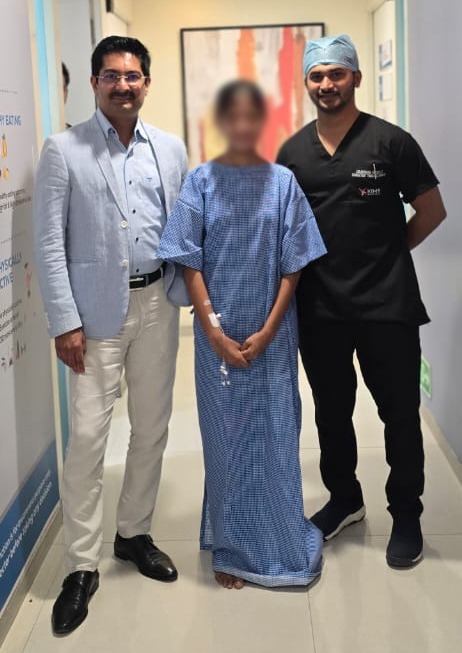Union Budget 2021 expectations – Healthcare
Dr Azad Moopen, Founder Chairman & Managing Director, Aster DM Healthcare The year 2020 with COVID-19 pandemic hit home the fact that a strong healthcare infrastructure is absolutely essential to ensure a sustainable economy. It is

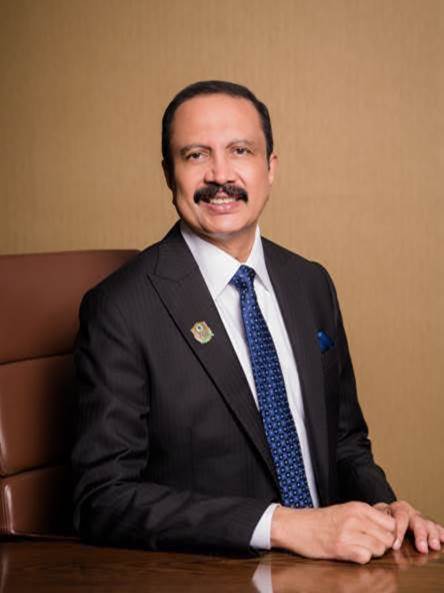
Dr Azad Moopen, Founder Chairman & Managing Director, Aster DM Healthcare
The year 2020 with COVID-19 pandemic hit home the fact that a strong healthcare infrastructure is absolutely essential to ensure a sustainable economy. It is important to at least double the healthcare budget from last year's meager allocation. This would help to improve access to affordable care for the masses. The Budget should also be able to create capacities for vaccinating India’s large population against COVID-19 which is key to end the pandemic and revive the economy. Allocation of sufficient funds to cover about 40% of the low-income population who fall under the Ayushman Bharat scheme through free vaccination shall help in addressing this. Also, India should have an open sky policy allowing Indian and foreign airlines to freely operate, which will bring down the airfare between the countries and help NRIs. A large number of NRIs have been made jobless and returned to India due to the pandemic. There is a requirement for a scheme for rehabilitation of the returning NRIs by providing them with jobs and seed capital for starting businesses. Initiatives to provide skill development for them may be started.

Ameera Shah, Promoter & Managing Director, Metropolis Healthcare Ltd.
Ameera Shah is the Promoter and Managing Director at Metropolis Healthcare Ltd. With close to 21 years in the organisation, she has worked on focusing on delivering sustained growth, built and led corporate functions, including finance, strategy, business process optimization, innovation, investor relations etc. Under her leadership, Metropolis raised the bar of diagnostic accuracy, technological equipment, customer experience and research driven, empathetic service. Ameera has been responsible for corporatizing Metropolis by setting protocols, hiring expert professionals for the management team and bringing together a fully actualized board. Due to its unique growth model and competitive advantage, Metropolis has attracted three rounds of investment by reputed private equity investors. Upholding the highest standards of corporate governance and business ethics, Metropolis has built exceptional value for all its stakeholders. Metropolis listed successfully in April 2019 at a 9% premium.

Jatin Mahajan MD (J Mitra & Company) and Joint Coordinator – IVD (AiMED)
The Indian healthcare industry has yet again established its yeoman credentials, managing the corona pandemic in such a remarkable manner. The healthcare industry is also playing a key role in driving government initiatives like Ayushman Bharat (Universal Health Coverage) and Make in India initiative.
Health is a major contributory factor that affects any country’s economic growth. As per Human Development Index 2020, India stood at # 129 out of 189 countries, with a government healthcare spent of approximately 1.29 per cent of the GDP, which is very low. But things are changing. Of the total public expenditure, the Centre’s share accounts for 25%. The total public expenditure on health has risen at 15% CAGR for the past 5 years.
The Indian diagnostics segment has especially played a significant role in the fight against corona, quickly doling out fast, reliable, and indigenous Covid-19 test kits. The Indian medical devices industry is pegged at roughly 37,000 crores as per government estimates, and 70% of the country’s needs are catered through imports.
The diagnostics industry is the very first line of defence against all ailments, and if India is to achieve its healthcare goals, then the policy makers need to address a few concerns.
In order to ensure a level playing field between Indian and foreign diagnostics players, and to ensure seamless growth of the Indian diagnostics industry the IVD industry expects –
- The draft medical devices policy is yet to be implemented. This should be actioned immediately
- The prevailing inverse duty structure favoured finished products (imported IVDs) over raw materials (made in India IVDs) – consequently leading to an unequal playing field for all domestic producers of IVD devices. Need to cut down import duty on raw materials and hike import duty on finished goods, which is the lowest in India amongst the BRIC countries. This is very critical.
- Just to cite an example, ELISA finished products (HS Code – 38220019 List 4 Sr. No. 32) have 0% duty and 5% IGST, whereas the raw material for ELISA kits under the same HS code attract 5-20% import duty plus 12% IGST – creating a price differential of 20-25%, and tilting the balance away from the home-grown manufacturers.
- There should be a robust strategy for establishing ICMED as a robust Indian certification mark equivalent to the likes of CE and FDA
- Medical Devices manufacturing hubs, that provide the right mix of common infrastructure, facilities, and subsidies for technological upgradation to increase sustainability and economies of scale
- Aspects critical for winning the Make-in-India race are – ensuring a cost advantage over China, faster government permissions and single-window clearances, ease of doing business, adequate financing, competent infrastructure, and soft loans with longer repayments, and this should be key focus areas in the coming budget

Ms Shilpa Ambre, CFO, SARVA, India’s fastest growing yoga and wellness ecosystem
Wellness has always been an integral part of the Indian culture. Be it yoga, pranayama, Ayurveda or the modern day workout forms, taking care of the body from inside out has always been important. The last 10 months have not just brought this to everyone’s notice but also empowered individuals to take more control of their health, with equal impetus being given by the Government of India.
Today the GST we are paying is as high as 18% but in the upcoming budget, we hope that this is corrected, given the increasing importance of wellness being a lifestyle as opposed to vanity metric.
In the last 9-10 months alone, we’ve seen so many new ventures in the space of wellness and to boost these new ventures, a Tax Holiday by the Government could be a good move.
With respect to companies specifically in the health and wellness space, I do expect the Government of India to introduce more incentives that encourage employers and employees to naturally gravitate towards making wellness, mandatory at the workplace. This can be done through tax exemptions when an individual invests in his/her health or some sort of rebates for corporates who make conscious choices for the health & wellness of their employees.

Ms Meena Ganesh, MD & CEO, Portea Medical, India’s leading consumer healthcare brand
This is the time to look back at the weak links of our healthcare ecosystem as exposed by the pandemic and take steps to cover the gaps in infrastructure, facilities and financial provisions in the upcoming budget. The major challenge that needs to be addressed through infrastructure is the rural-urban divide in healthcare. Despite about 75% of Indian population residing in rural areas, the healthcare concentration is heavily skewed in the urban areas. The absence of hospitals and qualified doctors in the rural areas results in patients from all over the country travel to major cities and incur a lot of additional expenses as well as loss of wages for the patients’ attendants. This is where the delivery of health services in the rural areas through e-health/e-medicine and other such technology driven means is going to play a transformational role. To make this happen, the government must ramp up the medical as well as training infrastructure in a big way. The best and fastest way to ensure quality healthcare access in the rural India is through e-health/e-medicine services. Funds must be allocated towards skill development of teachers, nurses, paramedical staff and caregivers. Further, by making budget allocations for development of telemedicine and home-based healthcare ecosystem in the country, it is possible to best harness the available resources to cover the whole country. This can be done through a public-private partnership in a speedier and more effective manner. Through development of an alternate on-demand home healthcare system, we can reduce the burden on institutional healthcare. Investing in out-of-home healthcare is less cost-intensive than building and maintaining new hospitals, and the system can leverage available resources to cover a much larger number of patients and healthcare seekers.
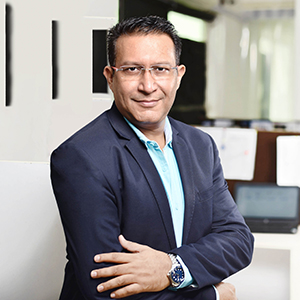
Mr Vikas Bagaria, Founder, Pee Safe, India’s premium sanitation and personal care brand
For India to emerge out of the contagion, we are eagerly expecting the government to provide greater thrust to awareness related to personal and preventive hygiene and to back startups working in this direction. Preventive care by promoting hand-hygiene, thorough and regular sanitization of the public as well as private spaces and ample availability of the hygiene products are going to be crucial. With close to 1.4 billion to care for, the Indian market continues to present an unmatched opportunity. This year’s budget gives us hope of better regulation of the hygiene industry which will help in attracting more foreign investment. The taxation sector in India is still complicated and despite all the efforts, early-stage funding/seed funding for startups continues to be a major challenge in the first five years. Thus, the government’s support and easing of norms in this area will be highly beneficial for the government’s Make in India initiative alongside the Vocal for Local campaigns which have now become the need of the hour. Imports are hit and Indian as well as global supply chains are moving away from China and the foreign investment as well as innovations by Indian startups can rightly make the country the next economic powerhouse as well as help India become a 5 trillion dollar economy as envisioned by the Hon’ble Prime Minister. We believe that an increase in the healthcare expenditure is crucial at this juncture and India currently has the lowest public health expenditure in terms of GDP percentage. The country needs an equal, easy and affordable access to quality healthcare. As far as taxes are concerned, it is important that the provisions drafted require no major changes for at least 3 years. This would reduce the compliance burden on startups and make management easier. Wherever needed, corrective changes need to be made to make implementation easier.

Mr Sanchit Gaurav, Co founder, Housejoy, one-stop solution for all home-related needs – from construction to maintenance
The COVID-19 pandemic has drastically changed the landscape of construction in India. However, industry operations are gradually resuming as the national economy gets back on track. There is a pressing need for the home construction and maintenance industry to contribute to the development of the country. The pandemic’s impact is likely to be felt in terms of the pricing of construction projects. The availability of materials has become more challenging due to certain restrictions, however, we are confident that the government will take measures to ease the situation by providing interest subsidies, reducing GST rates, etc in the upcoming budget. In the absence of government support, the pandemic impact could undo the gains made by the Indian construction industry in recent years. Nonetheless, the government has frequently announced plans to strengthen the infrastructure and construction sectors and we are confident that the sector will receive the much-needed support in the upcoming budget announcement.

Ms Shumita Kakkar, Founder, United We Care, a unique platform for everyone
The COVID-19 pandemic has created a lot of changes to the way we live and interact with others in the society. However, it is time for us to recover and move ahead constructively. The government’s budgetary support and initiatives are set to play the key role in this arena. There is a need to integrate technology driven start-ups in its action plan to boost physical, financial and mental health of the public. There must be a multi-pronged approach starting from making cheaper finances available to e-platforms, foreign and institutional investments simpler and more attractive and policy support to start-ups. This is more so for those engaged in aiding the mental and social health of the public. Mental health consultations and support services can be given tax exemptions and incentives to expand their coverage and employ more consultants.
Another key initiative must be in the form of facilitating training and education for mental health counsellors, psychiatrists and other advisors to create a larger number of specialists. By collaborating with the private sector e-platforms, the government can expand mental health coverage all over India and effectively support the wellness of hundreds of millions of people. Integrating cutting edge technology by such start-ups should be incentivized. Last but not the least, mental health consultations should also be made a part of coverage under insurance. Health insurance policies cover mental illnesses currently but making consultations a part of it might encourage more people to opt for it.
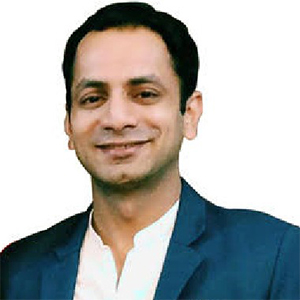
Mr Nilesh Aggarwal Director & CEO, Medtalks.in, a leading healthcare Learning and Patient Education Platform
This is the time to revamp the Indian healthcare sector through budgetary infusions. India’s healthcare budget in terms of GDP ratio has been abysmal until now, and the chinks in the armour were thoroughly exposed by the pandemic outbreak. The time has come for the government to scale up the investments in healthcare and create budgetary provisions for capacity building and supporting technology driven healthcare start-ups from the private sector as well.
Another key area that needs to be focused on during the budget is the creation of healthcare professionals. There is severe crunch of qualified doctors, nurses, hospital attendants and mental health professionals in the country. The government needs to build training and development infrastructure to create more skilled healthcare professionals and also to facilitate skill enhancement of the current workforce to meet the post-pandemic needs. The Indian medical and pharmaceuticals sector depends greatly on China for APIs and imports a lot of medical devices. The government needs to support Indian companies to overcome this need by supporting domestic manufacture of equipment and medicines. This is a great opportunity for Indian healthcare sector to replace China as the global hub of commerce and for that the government needs to proactively facilitate financial input. There has to be a support for private sector investments as well in the healthcare industry.

Mr Tapan Barman, Co-founder and CEO, Mihup, a leading conversational AI platform
After the recent pandemic, it is time to look forward. The road to recovery is bound to be built by technology and start-ups need strong backing from the government in terms of financial support in the budget. The pandemic has driven the global companies to look at India as an alternate to China in terms of technology and manufacturing. By simplifying things such as taxation and investment and offering further incentives to Indian start-ups, the government can help in helping them generate more revenue and employment. Development of cutting-edge technologies should be incentivized and the government can further enhance innovation in technology and manufacturing sectors. This can be done through infrastructural and financial support as well as skill development and integration of cutting-edge technologies in all sectors including governance. Export of technology products should be incentivized. The Indian IT sector is already renowned globally, and now is the best time to make the country the global hub in tech innovation and automation.

Budget expectations
Life Sciences and Health Care
Top three asks:
1. Improved health care through funding: Increasing public spending through subsidised loans, providing land for new hospitals, and encouraging Corporate Social Responsibility (CSR) spend by allowing it as a tax-deductible expense.
2. Targeted incentives: Tax holidays for new hospitals in rural areas, weighted deductions, and tax holiday regimes for promoting India as a compelling R&D destination.
3. Increased affordability through reduced GST impact: Categorising life-saving drugs at the lowest rate of GST and “zero-rating” of GST for health care services.
Recommendations Implications
Incentives to promote R&D in India:
• Reintroducing weighted deduction for R&D expenditures.
• Bringing R&D players within the fold of the reduced tax regime, or preferably, extending incentives such as Gift City or erstwhile SEZ for R&D in India.
• Improving the patent box regime to offer reduced tax-rate benefits to assignees/transferees of the patent as well (and not restrict it to only the true and first inventor of the invention). These measures should help attract industry players to invest in more R&D activities in India.
It should also incentivise investments in contract R&D, to develop and utilise India’s human capital resource.
These initiatives would also lead to overall technological progress.
Special measures for critical focus areas:
• Reintroducing tax holidays for rural hospitals and the flexibility to select beneficial years.
• Viability gap funding by the government for investors setting up hospitals in smaller cities to increase Ayushman Bharat’s provider base.
COVID-19 has reinstated the importance of having a robust hospital infrastructure across the country.
Also, global health care players, while making investments/expansion decisions, consider not only the low cost of manufacturing, but also the potential local market demand.
These measures would make it viable and attractive for health care players to invest across India and also boost the medical devices sector.
“Zero rating” of GST for health care services and sanctioning the accumulated input tax refund to the service provider.
• Although health care services are currently exempted, tax on inputs continue to add to costs as there are no input tax refunds. This will achieve twin objectives of (i) keeping the credit chain intact and (ii) ensuring that tax is not loaded onto the cost of health care services.
Other major economies have also adopted a similar approach in their GST laws, and thus, this will be consistent with the best practices from a tax policy perspective.
Relaxations, vis-à-vis tax credit, on expired goods:
• The time limit prescribed by law (i.e., September of the next financial year in which the supply was made) to adjust the tax liability of credit notes should be relaxed for expired medicines returned to the manufacturer/wholesaler.
• Alternatively, it is recommended to clarify that reversal of input tax credit will not be required for products consumed by the health care industry. Medical best practices mandate the manufacturer/distributor, etc., to safely dispose of expired goods, and therefore, they are, at times, required to take back expired items from trade channels.
Given that the shelf life of such medicines during manufacturing is generally 2–3 years, these measures should provide considerable relief from current difficulties.
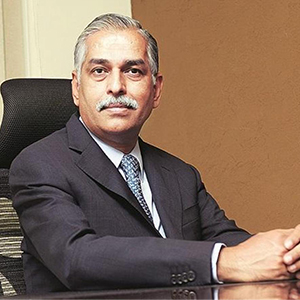
Dr. Ashutosh Raghuvanshi, MD & CEO, Fortis Healthcare Limited.
“Healthcare should be given top priority in the 2021 budget. There is an urgent need to fast track the recovery of private healthcare providers, support infrastructure building, facilitate medical research and invest in bio-tech whilst enhancing skill development of healthcare workers.
This is an opportunity to offset the challenges and gaps in our healthcare system by allocating more resources to encourage the PPP model, push digital health, boost local manufacturing of healthcare equipment, take steps to improve patient-doctor ratio and encourage scientific costing and market-based fair pricing. Our strategy must integrate preventive and curative services, and make healthcare more affordable for the people of India.”

Sanjiv Navangul, M.D. & CEO of BSV (Bharat Serums & Vaccines Ltd.)
believes the budget is likely to focus on a quick ‘recovery’ from pandemic lessons. He says, “The need of the hour for our industry is
the availability and affordability of life-saving drugs for our billion-plus populace. The government’s vision for Atmanirbharta is based largely on the good work that authorities such as the DPCO will take up. The Union budget should address long-standing special incentives and subsidies to encourage indigenous drugs and API production in line with Atmanirbharta. There should be tax cuts on life-saving drugs to make them affordable. We must also provide full medical cover to proactively help indisposed and senior citizens. Grants to Indian companies that make novel drugs should be made available to speed up patents and inventions. Flexible pricing policies that can encourage upto 7% MRP increase year on year and giving 300 percent deduction for R&D expenses will be beneficial for the industry.

Mr. Haruto Iwata, Managing Director, Fujifilm India
With the pandemic giving a wake-up-call to the healthcare sector, it has given rise to new opportunities along with the urgency to prioritize welfare for healthcare professionals, offer best-in-class medical devices and solutions that will enable quality healthcare for the consumers. Keeping this in mind, at Fujifilm India, we expect the budget 2021 to create new horizons for the medical sector. We believe that the Government of India will bring in new policies that will cater to providing a comprehensive and integrated healthcare ecosystem in the country and support the patients to get access to high-quality and cost-effective care. Given the unprecedented challenges we faced due to the public health crisis, there is a need to create a shared digital infrastructure to make innovative solutions in the healthcare sector. Investments in new medical care technologies are and will be at the forefront of combatting COVID-19 and will also help us pave the way for any future uncertainty. We at Fujifilm are working extensively towards promoting preventive healthcare amongst consumers and understand the importance of offering medical solutions to the community that best cater to their needs and demands
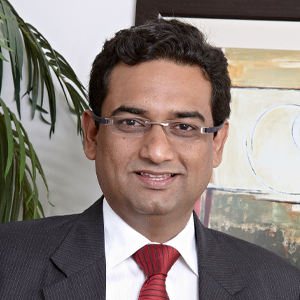
Mr. Amol Naikawadi – Joint Managing Director Indus Health Plus (P) Ltd. Pune.
Mr. Amol Naikawadi has been instrumental in charting out Indus’s story and its rapid expansion throughout India. He has piloted Indus successfully for almost a decade now which itself is a testimony of his management skills and leadership. Indus continues to grow with its genuine product innovation, all thanks to this man of vision. Growth is at a healthy double digit year on year; a strong core management team is in place; rapidly expanding delivery centers are reaching out to more and more customers every day. Born on 29th July 1976 and brought up in a small town, Amol did his schooling in a military school in Satara. Having pursued higher education in Commerce from Pune, MMCA, Amol was keen to forge his own path ahead and was confident that the opportunity would present itself in due course of time. Chartered Accountancy honed his skills and he immediately plunged into the world of business, never to look back. Sensitive to the needs of close friends and family, Indus Health Plus was started to educate people on the benefits of preventive check-ups and save lives in the process. The effort was focused on ‘prevention’ and ‘early detection’. A two-fold vision to make preventive healthcare a way of life and to make quality healthcare ‘Accessible, available and affordable’, Amol dreamsof bringing the concept of ‘high-end prevention’ to every corner of India. The transition of Indus from a single service center to a multi-functional organization (more than 122 centers in 78 cities) is a testimony of his skills. Indus continues to grow under his guidance. At the helm of developments, Amol is facilitating a staggering growth rate for Indus on a year on year basis. An avid reader of management books, biographies and business books, Amol is a master strategist and under his able leadership, Indus Health Plus has been conferred Indus was conferred with Brand Achievers Awards in 2015 and Assocham CSR Excelllence Award 2014 in the ‘SME & other category’ for the outstanding CSR activities undertaken by the company. He was also applauded with Service Provider Company of the Year Award 2013 during Frost & Sullivan India Healthcare Awards in September 2013 and ‘Special Commendation’ for the ‘Golden Peacock Business Excellence Award’ for the year 2013. He was honored with the ‘Super Achievers Award’ by Indira Group of Institutes in 2011. He is also a proud recipient of the Asia Pacific Entrepreneurship Awards 2009, an award dedicated to top achievers who make a difference. He was also honored by the Bharat Gaurav Award, awarded during the National Unity and Industrial Growth Conference in 2009. Amol also happens to be a Member of the FICCI
Healthcare Services Committee. A role model for all his employees, his vision percolates down through all the levels in the organization. Amol believes that some of the most ambitious moves are yet to come. He is engaging himself in developing a strong growth strategy which should see Indus establish itself as one of the most credible providers of preventive healthcare nationally.

Dr KM Cherian Chairman & CEO, Frontier Lifeline Hospital
In a country like ours, healthcare has always been expanding and it is only fair that the dire concerns of this sector should be addressed. Firstly, if the pandemic has taught us anything, it is that frontline workers & medical professionals are of utmost importance to the nation. The healthcare system of a country during the COVID pandemic became a testament to its strength. In a populated country like ours, there is a significant lack of medical and healthcare professionals. It is imperative to make provisions in budget to address this issue by providing funds for skilling in educational institutions- both private and public.
There is a dire need to incentivise R&D in Basic Medical Sciences and other areas, to ensure progress of indigenous technology. It is high time we start giving importance to innovation within the nation. The government has to support the progress, without discrimination.
Take my example- I left my permanent resident status in the US and Australia, to come and serve my country. I commenced the job in our motherland at a meagre salary bearing all difficulties of government restrictions and rules. I have tried my best, contributing and opening up new technologies in the country. But I was not encouraged to take any advantage of knowledge due to bureaucratic and other regulatory restrictions. The way to go forward in terms of research especially in indigenous research to achieve the goal of MAKE IN INDIA, and make affordable HEALTH CARE for common man has not been supported by Government agencies including Financial institutions such as Public banks and other scientific bodies of govt of India such DST, DBT etc. I wanted to build India’s first Bio-medical science park, which is tied up in so many red tapism.
Last year, I filed a Public Interest litigation (PIL) in the Madras High Court expressing deep anguish over numerous obstacles faced by scientists across the country due to lack of farsighted government policies for the promotion of medical research. We are yet to see any results. Even recommendations from NITI Ayog has been ignored.
I sincerely hope and wish, that there are effective policy changes as promised by Hon’ble Prime Minister will help in the prospective of future generations and medical professionals. It is important to note that world economic forum has declared 2030 as decade BIO-ECONOMY.
Even though the Government has been condemning about BRAIN DRAIN from India, I sincerely hope the BRAINS will not be in the DRAINAGE.



